“In five years’ time all this will be gone.”
That’s a pretty powerful statement, by anyone’s standards.
What makes it even more weighty is that it was delivered by the head of the UK’s largest franchised dealer group, Pendragon, at AM’s Franchised Dealer Conference.
“In five years’ time all this will be gone.”
That’s a pretty powerful statement, by anyone’s standards.
What makes it even more weighty is that it was delivered by the head of the UK’s largest franchised dealer group, Pendragon, at AM’s Franchised Dealer Conference.
(To read this interview in our AMe digital magazine, click here)
A delegate in the audience had asked him about the impact of the internet on motor retail.
Six months on, Trevor Finn told AM he is amused that none of the delegates picked up on that statement.
As he describes it: “Everybody nodded gleefully and we moved on, as if that was all right.
“What I tried to say was the way we do things today won’t still be taking place, it won’t be happening – it will be gone. The way we sell new cars today will have gone.”
If a £3.6 billion turnover group with more than 250 franchised dealerships and employing 9,300 people can make such a prediction, that’s a signal to all motor retailers that they must move with the times.
“Over the last 20-odd years I’ve done this job, every single year it’s become tougher.
"So there’s absolutely no realistic possibility of that changing. Everything is faster, more competitive, more transparent.
“Whichever piece of the business you look at it’s got to be getting better in order to stand still, or you’ve got to be getting better to stand still.
"A lot of people miss that.
"From a leadership point of view if a lot of people are doing what they were doing five years ago, the way they did it five years ago, their output isn’t as great as it would have been five years ago.”
So Pendragon is changing. Gone are the days of massive acquisitions of the likes of Reg Vardy and CD Bramall.
Now the group has to grow its own. Finn believes its profitability can be doubled, even trebled, by improving what it already has and does.
He is pragmatic about the new car market – production schedules are set, cars will come, and the cars will get registered, he said.
“So for us it’s quite an easy thing to predict.
"The only thing that’s difficult to predict is do we make any margin, and do the car manufacturers make any margin on the cars they sell, and that’s the thing that moves around.
"But it’s not going to be any less competitive than last year.”
Used cars and aftersales
Like many franchised dealers, Finn sees the areas of used car sales and aftersales as key areas for growth.
Pendragon has invested significantly in technology and processes which it believes will bring benefits to a business of such considerable scale.
One example is its support centre at its Loxley House headquarters near Nottingham, which has 300 operatives.
Every call to any of Pendragon’s dealerships is initially received here before being directed to the relevant person at the requested dealership.
That’s a total of five million calls per year.
The team also makes two million outbound calls a year to customers about deferred work or due services and MoTs, and takes 750,000 in-bound service booking calls from customers, with the operative systematically alerted to any outstanding work which had been previously identified.
It has the technology to input appointments in real-time into every dealership’s DMS, and the process ensures that customers’ data is gathered in full and efficiently.
If you would like AM to profile your franchised dealer business please contact am@bauermedia.co.uk
[page-break]Another example of the technology Finn holds dear is its dealership security system.
Cameras and sensors at every dealership enable a small team in a secure room at Loxley House to monitor every site in the group.
If a sensor is triggered out of hours, it pops up a live camera feed to the secure room together with contact data of the local police.
The security operatives can speak live to the visitor, to advise them to return when the business is open, and can alert the police if the visitor appears suspicious.
It saves having a security patrol for every single dealership.
It’s a clear illustration of how Pendragon sees technology as a way to improve results and reduce costs in the future.
“We’re interested in smarter ways of doing things using technology. So we’ve got a big thrust on systems and processes, if it can make us more efficient and effective.
"Process which we’d link to cost, because generally speaking it improves your cost and your productivity.”
Now that every dealer has become switched on to service plans and vehicle health checks, Pendragon is using technology to “move the needle”.
It’s a needle that must move, because the number of franchised dealerships in the UK is in decline, those that remain make increasing investments in facilities and standards and optimise all aspects of their business because, meanwhile, the new car retail market has shrunk and the leasing industry dominates.
Smaller networks in future
Finn believes a contraction in the franchised networks is needed, as the footprint of UK dealerships hasn’t declined in pace with the opportunities.
Throughput per location is a big issue for profitability.
He described Renault UK’s decision to cut a third of its dealerships as “based on logic and therefore likely to be successful” and said a change to the sector’s business model is needed, as dealer margins become more of an issue.
But the change will be driven by the manufacturers.
“Things need to change, but that’s not my decision is it?
"I’m not in control of the new car market, or the way that new cars are sold so from our perspective we can only adjust and adapt to fit in with the market.
"We can’t actually make the market do what we want it to do.
"You know there’s no question about it, the structural change in the market is the thing that affects the dealers, and that can only be described as structural change.”
“The thing that obviously I have to address is what’s happening to our business, but the new car market is run by the car manufacturers and we’ll do what we can do in that market.
We’d expect, in any market where we represent the manufacturer, to do a good job for the manufacturer, but no matter what we do we can’t change the UK market.”
He questioned whether consolidation over the past 10 years had benefited dealers commercially.
For Pendragon the biggest benefit has been achieving the scale to apply technology to become more efficient, he said.
However, he warned dealers’ investments cannot be sustained forever if they cannot make a return without the “smokescreen” of property appreciation.
After a 20-year period when Pendragon doubled in size every three years through acquisition, the economic climate has led it to focus on the business it has.
Not everything worked out.
Finn said with hindsight there would’ve been plenty of things to change, but there’s little point to hindsight.
But the wins make up for the losses.
Pendragon has topped the sector for more than a decade.
Finn claimed Pendragon has a better business footprint today than it ever had, with stronger, adaptable teams and more depth – robust foundations for build-ing upon.
It also has greater levels of management information, and more focus on customer data and engagement.
Creating a local business feel
“We can double, maybe triple our profitability with what we’ve got,” he said.
Pendragon may be huge by dealer group standards, but Finn knows the business ultimately comes down to every single customer-facing person.
Despite the processes, frameworks and systems, they’re the person with the answers when dealing with the customer, not him.
So the aim is to create a local business feel with a team that is enthused about its operation, with brand, divisional and central support.
Staff are encouraged to engage with their customers and local communities.
Every year Pendragon holds its ‘Top Gun’ awards to recognise and reward its highest achievers.
He said even a business the size of Pendragon has not helped to change the industry in the last decade.
The biggest thing that has changed it is the internet.
“I can’t think of a single business, or a single person potentially who isn’t affected by it.
"Even people who haven’t got any internet access, who’ve never used a computer are being affected by it.
"I mean it’s huge, absolutely huge in everything.”
Given the pace at which the industry will have to run to keep pace, Finn could well be proved right in five years time.
“Don’t be distracted by the wider economic climate”
An underlying message of Trevor Finn’s interview with AM was that dealers should concentrate on what they can control and influence rather than be distracted by the wider economic climate and media gloom.
While he recognised the “dark clouds” over the industry in 2012, Finn’s assurance was that it was nothing dealers hadn’t seen before.
He described the 2008 credit crunch as “a much darker place” than today, and said Pendragon had moved forward since then and expects to move forward again this year.
“When we went into 2008 it was a little bit like driving into a big fog bank and nobody knew what was inside it, which was quite a scary thing.
Looking at 2012 people will see the fog bank, but this time they’re much more familiar with what’s in there and what to do,” he added.
Finn showed AM slides tracking the trend of new car market in the 1989 recession and subsequent slow recovery against the current economy.
It took almost a decade to reach pre-recession levels.
Excluding the influence of 2009’s scrappage scheme, the post-2008 market is following a similar pattern, which suggests it will could be 2020 before it peaks again.
“If you know that then you don’t have to get yourself all excited about how it’s going to be great again in two years time, do you?” said Finn.
“That was last time, so why would it be any different.”
Login to continue reading
Or register with AM-online to keep up to date with the latest UK automotive retail industry news and insight.

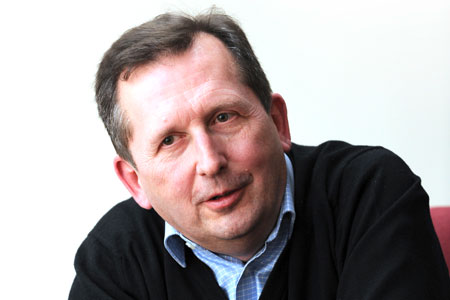



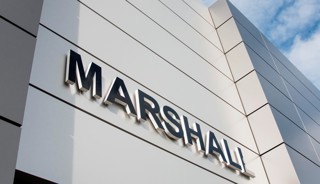
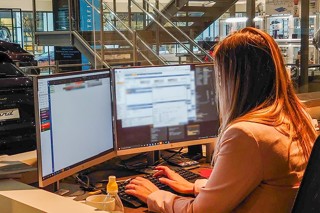

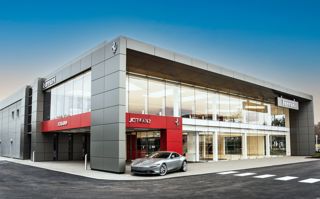
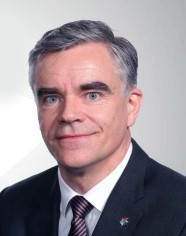













kevthebass - 22/02/2012 10:05
Perhaps no one was surprised because Mr Finn's comments were hardly new, people have been saying exactly the same thing for years. I'm sure there will be changes but buyers will still need to drive the vehicle they are contemplating purchasing, even if they then order it online. Aftersales has been more profitable than sales for the past 20+ years and yet is pretty much an afterthought for most franchised dealer groups, most need to improve CSI significantly and are too expensive. What's needed is a massive reduction in overheads, including the "glass palaces" that attract no additional customers, provide no customer service benefit (have you ever tried to park at any main dealership?) just additional costs which need to be recovered. A trip around mainland europe will reveal a totally different vehicle franchise approach, very few "glass palaces" and far more small owner-operated sites which would never meet the "franchise standards" imposed in the UK. Buyers will travel further for their exciting new vehicle purchase (or get it delivered!)but will not travel for the "distress purchases" of aftersales, so the network should reflect that. Given that new vehicles sales make minimal profits (thanks to the internet and dealers living off manufacturer rebates) it's not rocket science to work out that used vehicles and aftersales provide the best profit opportunities, that's why there are so many independents making a very good living. Of all the dealerships in the country I had rather hoped that Pendragon Group would be the first to disappear. Finally, centralised national workshop bookings, cheaper; possibly, better for customers; almost certainly not. A vehicle repair workshop is a very complex and fluid entity, it cannot be operated efficiently from a remote location, no matter how sophisticated the DMS, not even Pinewood!